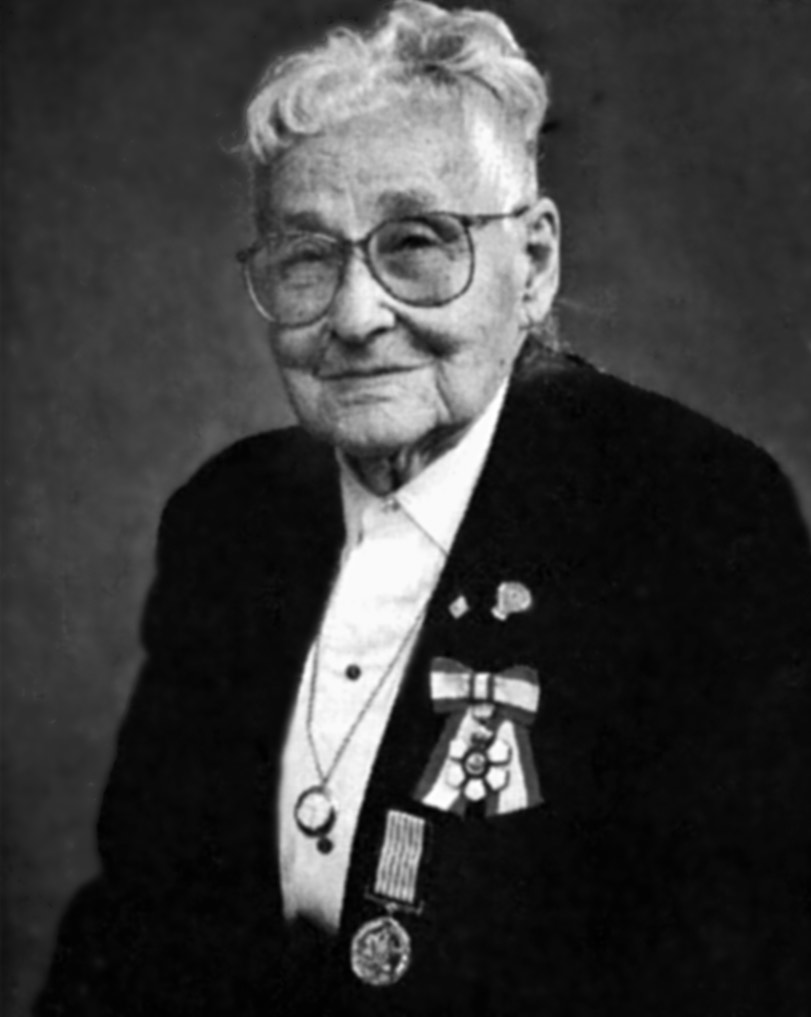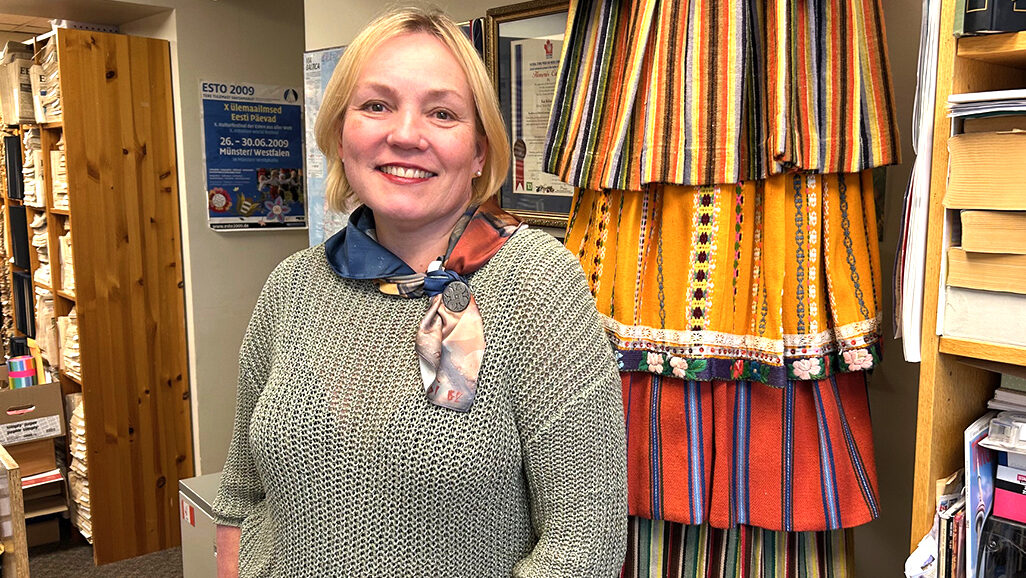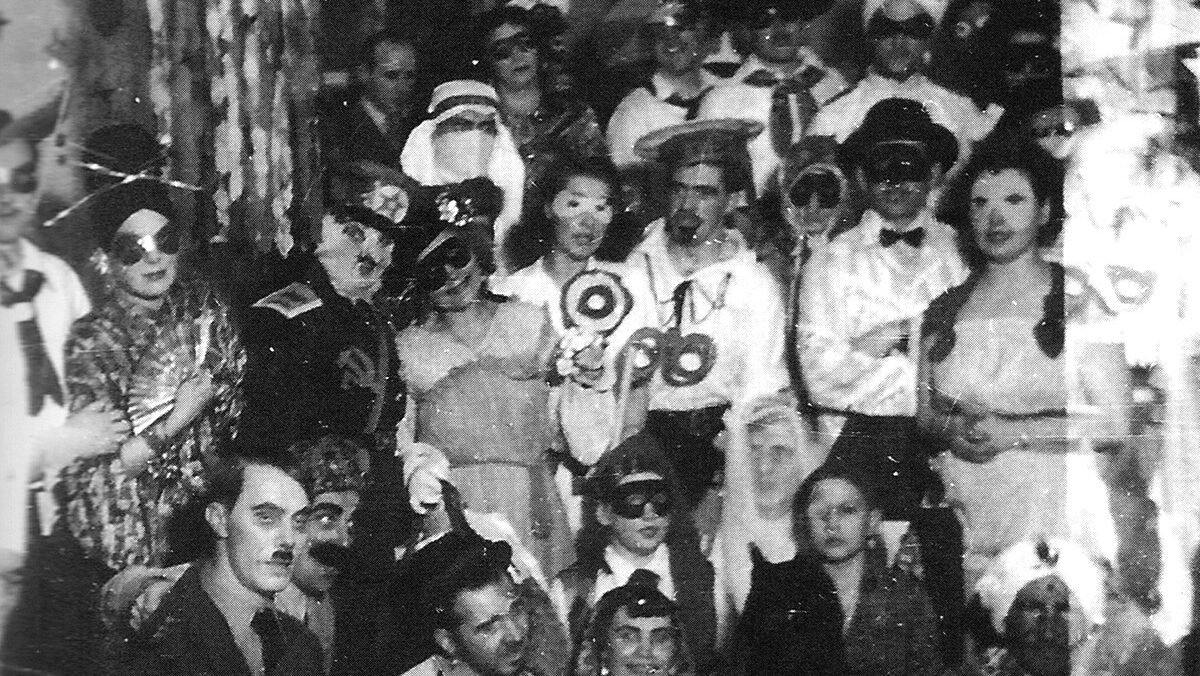The film chronicles Anna's life (1912- 2010), from her childhood in Estonia, the trials and tribulations she faced escaping the Soviet Union, and her life as a social justice advocate in Canada.
Below is a conversation with Storring about the research and production of the film, his filmmaking approach, its impact, and Anna Kaljas' legacy.
How did you become a documentary filmmaker?
I started as a photojournalist at The Record, a daily newspaper in Kitchener-Waterloo. After about 20 years in that role, I moved to the web and put The Record online. After leaving, I worked at a think tank called the Centre for International Governance Innovation, working again in the online world by developing research communities worldwide. By that time, I had been in Kitchener for a long time. I decided that what I really wanted to do was to return to the idea of telling stories about the community where I lived. Since I was deeply involved in the digital world from my previous work, I realized that the tools I had for storytelling were quite accessible, so I went on from taking still photos to filmmaking. It was a return to a first love in many ways.
Could you elaborate on your connection to Anna Kaljas or how you came across her story?
As a photographer at the newspaper, I would sometimes get assigned to take a picture of her shelter homes on Frederick Street. I knew of her, but I didn't have a close connection to her at that point. Part of what inspired me to start the film was a close friend of mine, Frank Etherington, who had a long-standing friendship with Anna. He often talked about her influence on his life and the community. When deciding on a subject for a film, you need to choose someone that people will be willing to sit down and watch for an hour or so. Anna had a story that begged to be told. I also find that, in my filmmaking process, it’s important to feature the people who know the film’s subject in a more personal way, like Anna's descendants, for instance. There was a tremendous amount of back and forth with them in the planning process–that's what you don't see in the film: the huge amount of background work, pre-interviews, and connections being made. This is an exchange—and I don't mean going to the store and buying milk from the cashier—but a meaningful exchange where storytelling happens.
Can you share a specific moment or story you learned through these exchanges that resonated with you?
One of the most powerful connections was with Jüri Täht's family in Estonia. I decided I really needed to connect with them to tell Anna's story. I tracked down a young videographer based in Estonia, told her I was trying to interview a family near Tartu, and asked if she was interested in being involved. We created a great working relationship. She helped me connect with Jüri's daughter, Evelyn Täht, who's written a couple of books about him. The interviews I did with Jüri were the first I did for the film. When you're making a film, I believe some pillars hold you up through the process—that was definitely one of them.
Were there any moments from Anna’s life that you found particularly compelling?
Anna's story is divided into two sections: before she came to Canada and while she was living in Kitchener. When I heard her story—particularly about her life in Estonia and the decision to leave—I found it really moving because you can see how resilient and savvy she was. Her life was very intentional. She gave the message that we don't exist without any agency. We are not here to aimlessly wander around. We are here to live an intentional life.

Source: dwightstorring.com
What other sort of research and planning went into making the film?
I didn't know a lot about the Estonian experience, so I visited the Estonian Museum Canada [VEMU] and spoke to Piret Noorhani. She really understood the process of making a film and helped me navigate the Estonian experience. Her influence on the film was subtle yet vital to producing it. The other part is connecting with my contemporaries in Kitchener, like Joe and Stephanie Mancini, who run the Working Centre [which aids unhoused people]. They were able to offer their insights into the current situation and what I was trying to achieve with Anna's story. That wove two different cultures into one larger story. That's like magic.
How does your storytelling approach make Anna's story stand out in today's media-saturated world?
One thing that is problematic about media in general is that it hinges on the implication that the more views your work has, the better it is. I turn that on its head because of the way I've approached filmmaking as an art practice. I am not looking to build a career in filmmaking. I'm more interested in connecting with the communities to which this film would be important. At the premiere, 250-something people gathered in one spot to celebrate Anna's life, spend time together, and talk about their connections to her and the community. That is what's important to me—building community.
What message or themes do you hope viewers will take away from the film?
It's great to share the Estonian experience in Canada because, in many ways, we're in a time when the experience of immigrants and refugees plays a big part in our country. Canada depends on immigrants for growth and cultural enrichment—talking about the Estonian story helps people realize this. When Estonian refugees came to Canada, they were called “displaced peoples” (or DPs), which was a derogatory term. It was a different time. People weren't exposed to other cultures. But Anna still helped them. My point is that refugees have come to Canada at various times over its evolution and have been instrumental in establishing a culture of acceptance, tolerance, and resilience—like Anna did.
***
The next screening of Anna Kaljas: The Untold Story is taking place on Sunday, October 1st, at 2:15 PM at Princess Cinemas in Waterloo.
This interview has been edited and condensed.
This article was written by Natalie Jenkins as part of the Local Journalism Initiative.




